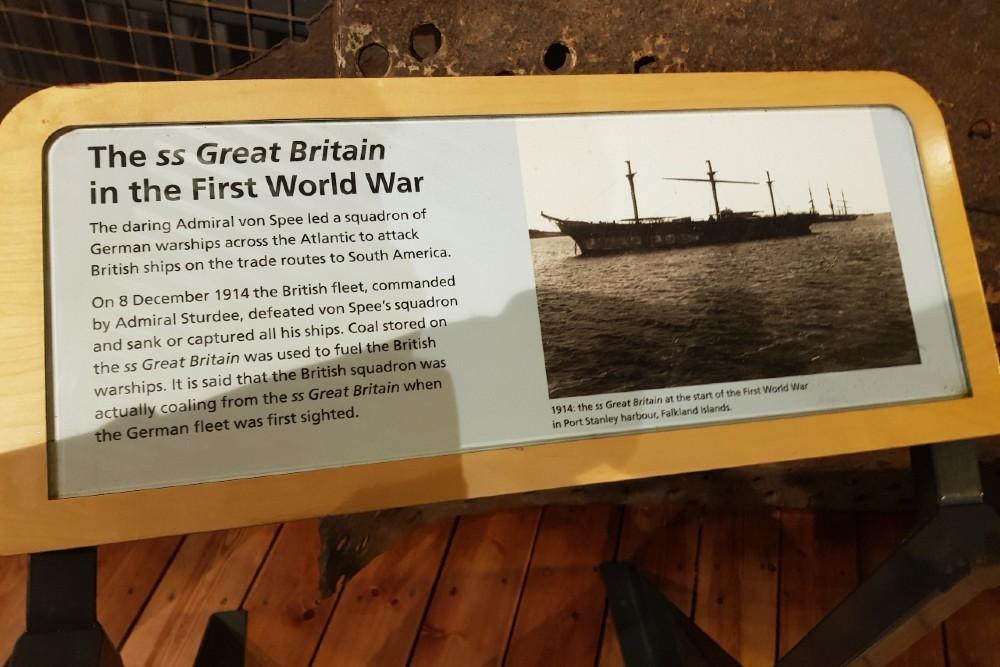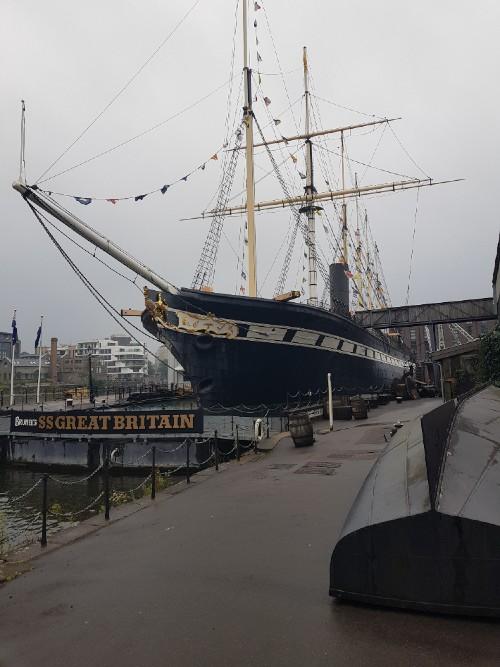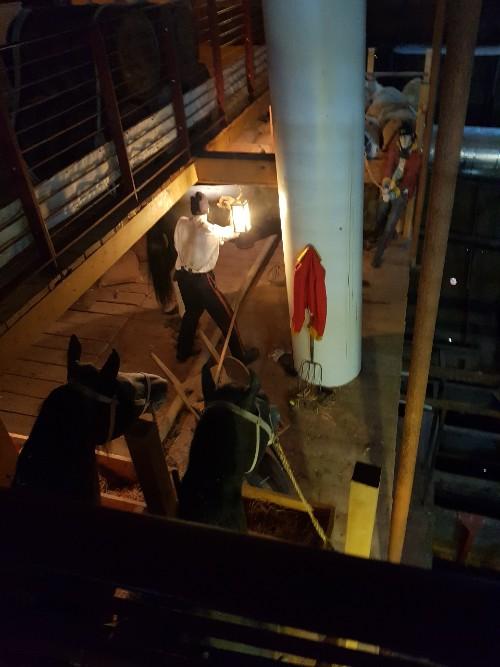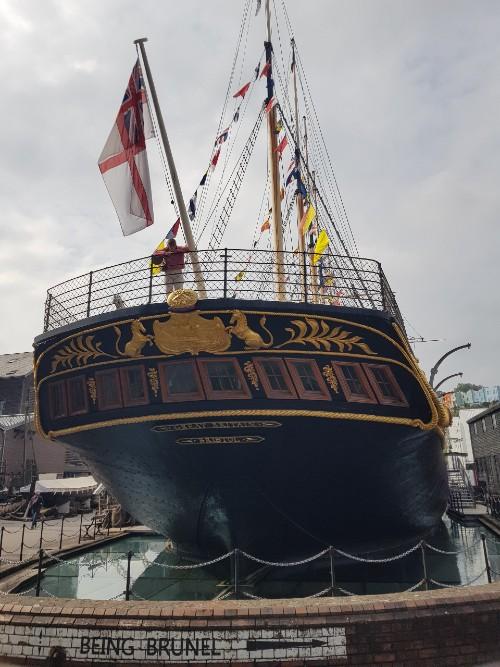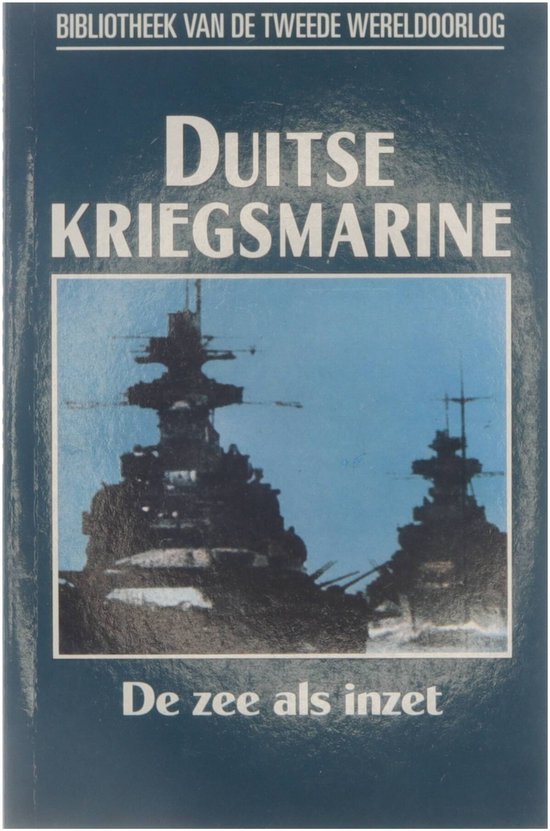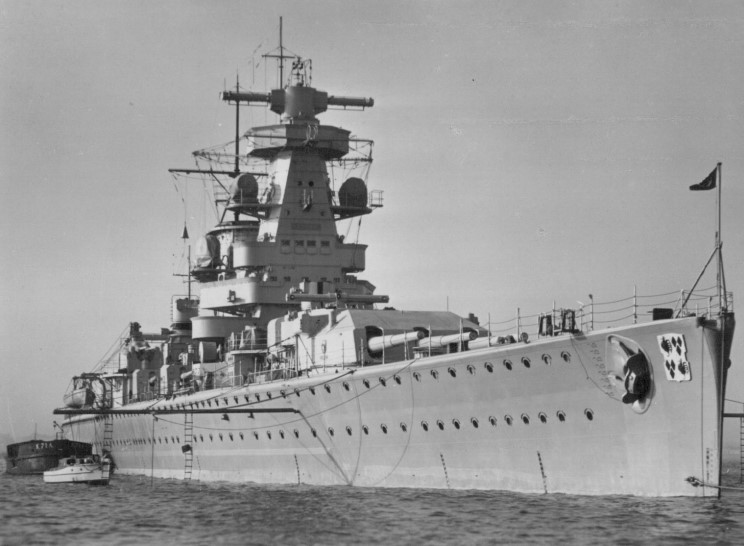S.S. Great Britain
SS Great Britain, designed by Isambard Kingdom Brunel, was launched in 1843 and up to 1853 was the largest passenger (some 360 passengers) carrying ship in the world, She was a steel hulled ship with a screw propeller with many revolutionary features.
During the latter part of Crimean War (1853-56) she was requisitioned as a troop ship and carried over 44,000 troops across the Eastern Mediterranean, mostly from Malta to Constantinople. One of the regiments she carried was the 57th (West Middlesex) Regiment of Foot and they feature in several of the exhibits in the museum. Sergeant George Gardiner and Private Charles McCorrie of the 57th Foot were awarded the Victoria Cross in the Crimean War. She was also used as troopship during the Indian Rebellion of 1857.
In 1882 she was converted into a sail powered freighter for bulk carrying coal. In 1886 she had a fire onboard and was ran aground in Port Stanley, Falkland Islands. She was sold to the Falkland Islands Company and used as a coal bunker. During the First World War the British Fleet was 'bunkering' in Port Stanley on 8th December 1914, when the German Admiral Graf Spee's fleet was sighted. The British Fleet sailed and caught the German Fleet and sank all ships in what is known as the Battle of The Falklands.
After the Battle of the River Plate, on 13th December 1939, when three British Cruisers engaged the Kriegsmarine heavy cruiser Graf Spee, the badly damaged HMS Exeter was forced to retire to Port Stanley were according to local history, steel sheets were taken from the wreck of the Great Britain to make good repairs.
After being abandoned and sunk in the Falklands, money was raised to recover her and return her to the same Bristol dock she was launched from 127 years later.
For current visiting hours, please visit the website of the museum.
Do you have more information about this location? Inform us!
Source
- Text: Sharky Ward
- Photos: Anthony (Sharky) Ward
Related books
Nearby
Museum
Point of interest
- Albion Dock Bristol - Bristol
- Sulphuric Acid Tanker Bristol - Bristol
- Bomb Damage St. Nicholas Church - Bristol
Monument
- Memorial HMS Flying Fox - Bristol
- Memorials Bristol Cathedral - Bristol
- Memorial Windows Bristol Cathedral - Bristol
Cemetery
- Commonwealth War Grave Bristol Cathedral Burial Ground - Bristol
- Commonwealth War Graves St. Paul Churchyard - Bedminster
- Commonwealth War Grave Ebenezer Methodist Chapelyard - Bedminster
